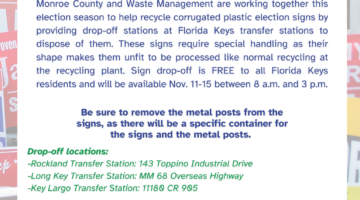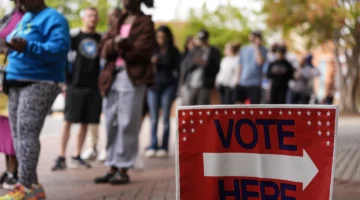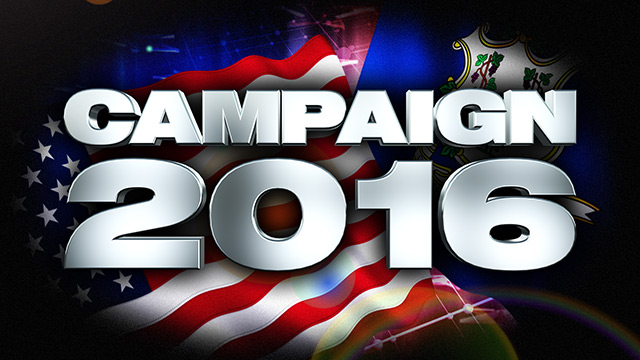What’s behind the ‘anchor babies’ buzz phrase?
LAURIE KELLMAN, Associated Press
CALVIN WOODWARD, Associated Press
WASHINGTON (AP) — Donald Trump took heat when he spoke about “anchor babies” and seemed to relish the fallout from his latest provocation in the race for the GOP presidential nomination. Then Jeb Bush echoed the phrase and found himself on defense — and increasingly exasperated.
Some call the phrase derogatory. Others, such as GOP candidate Ben Carson, dismiss the hubbub as “silly political correctness.”
The back-and-forth is really about birthright citizenship. Native-born children — born even to those living illegally in the U.S. — are automatically considered American citizens under the Constitution’s 14th Amendment.
Whatever the issue’s lasting value, “anchor babies” is the latest buzz phrase, hashtag and flashpoint in the volatile debate over who should stay in the U.S. and who should leave.
Here’s a look at the phrase and why people care.
DEFINITION, PLEASE
The American Heritage Dictionary: “Used as a disparaging term for a child born to a noncitizen mother in a country that grants automatic citizenship to children born on its soil, especially when the child’s birthplace is thought to have been chosen in order to improve the mother’s or other relatives’ chances of securing eventual citizenship.”
The dictionary revised its definition in 2011 from one that did not mention the fact that some people consider the phrase demeaning. It’s now marked as an “offensive” phrase.
__
ARE THERE REALLY 400,000?
The Trump campaign asserts that 400,000 children are born each year to women in the country illegally. The actual number appears to be smaller, but is still sizeable.
A Pew Research Center study in 2010 estimated 340,000 babies born in 2008 were the offspring of people in the country illegally.
But the term in question implies that people cross into the U.S. illegally for the purpose of giving birth to a child who will become a citizen. No one can know how many came with that motive, and there are other reasons that help explain why so many of those children are U.S.-born.
The Pew study says people who come to the country illegally are considerably younger than legal immigrants, and both groups are younger than the population of U.S.-born adults. In addition, immigrants have larger families. Altogether, the study says immigrants, whether they are in the country legally or not, are the parents of 23 percent of all children in the U.S. even though immigrants make up only 13 percent of the population.
___
HOW MUCH OF AN ANCHOR?
The clearest benefit to having a child in the U.S. is that the child becomes a citizen. But what about the child’s family?
Immigration law holds that a citizen cannot sponsor relatives, including their foreign-born parents, for legal immigration benefits until they are 21 years old, so there is no short-term gain for the family in terms of citizenship.
Under President Barack Obama’s administration, immigration enforcement officials have been instructed to consider whether or not an immigrant living in the country illegally has U.S.-citizen children when deciding whether the person should face deportation. But those with serious criminal histories or who are considered a threat to public safety or national security remain an enforcement priority.
___
WHERE IT STARTED
Aid workers in 1987 were quoted in news clippings at the time as referring to “anchor children,” offspring of Vietnamese boat people. The phrase “anchor baby” occasionally appeared in print over the next decade, but achieved prominence in 2006 during a new focus on an immigration overhaul in the U.S.
Lexicographer Grant Barrett nominated the term for the American Dialect Society’s 2006 Word of the Year.
___
WHY PEOPLE CARE
Immigration law can be a painful public debate because it’s really about who is an American: Who is obligated to pay taxes and obey laws, and who enjoys the right to vote, support a family, get educated, receive government help and be protected by the military. It’s a tricky moral question for a nation established by foreigners. It’s socially uncomfortable. And it’s politically fraught for Republicans, who see attracting more of the influential Latino vote as critical to their party’s future.
That Bush finds himself on the defensive on immigration policy shows how delicate a line all Republicans have to walk. He could be among the most appealing Republican to Hispanic voters: He’s been governor of heavily Hispanic Florida, speaks Spanish and has a Mexican-American family. And last year, he departed from the rhetoric of some of his GOP colleagues by declaring that illegal immigration is an “act of love” by people who want to give a better life to their families.
___
WHAT DID TRUMP AND BUSH SAY?
Trump, appearing Aug. 18 on Fox News’ Bill O’Reilly show, referred to the complex congressional action that would be required to change the 14th Amendment: “I think it would take too long. I’d much rather find out whether or not anchor babies are citizens because a lot of people don’t think they are.”
A day later, in a telephone interview on former Education Secretary Bill Bennett’s “Morning in America” show, Bush called for “better enforcement so that you don’t have these, you know, anchor babies, as they’re described, coming into the country.”
Democrat Hillary Rodham Clinton and others criticized Bush’s use of the term.
Bush responded in both English and Spanish: “This is ludicrous for the Clinton campaign and others to suggest that somehow I was using a derogatory term.”
He said he was really referring mostly to the so-called birth tourism industry that flies predominantly wealthy Asian women to the U.S. to give birth so their children will have U.S. citizenship — a real phenomenon that has drawn concern from the Obama administration.
Earlier this year, federal authorities served search warrants on three-dozen homes in California as part of an investigation into businesses that fly Chinese expectant mothers to the United States, put them up in special hotels and deliver their children. Authorities filed charges against 10 Chinese nationals who violated federal court orders in the case and fled the country.
[livemarket market_name="KONK Life LiveMarket" limit=3 category=“” show_signup=0 show_more=0]








GET OVER IT!!! Everyone is trying to be way to PC! This is a real problem and an abuse of the LAWs! Does it really matter what they are “called?”